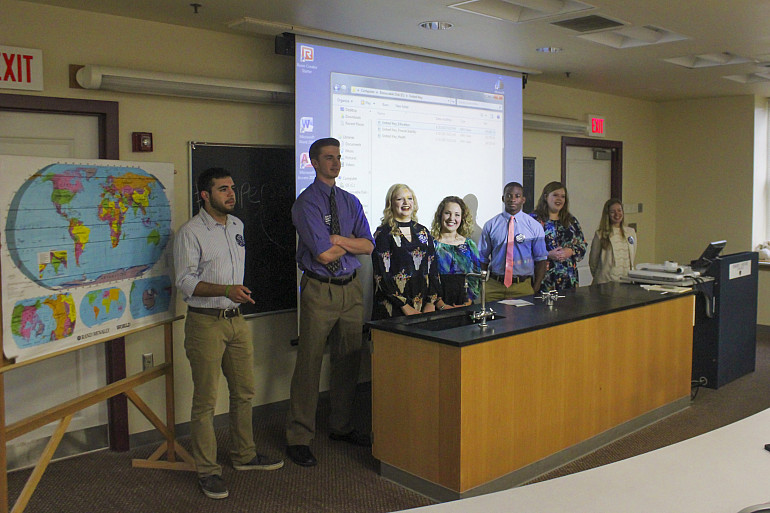Quality Enhancement Plan
“Learning. Doing. Connecting.” As part of the SACS-COC reaffirmation process we have developed a Quality Enhancement Plan (QEP) that is designed to enhance our student learning outcomes in a way consistent with our college mission and strategic plan.
Our QEP supports students in connecting what they care about to what they are learning so they can design and implement projects that contribute to our community and our world.
Three Operational Goals of the QEP
The QEP will develop pedagogical methods that cultivate integrative learning skills in three ways:
1. Incorporate integrative learning dimensions across the entire curriculum.
First, two requirements will be made of all general education courses (CORE courses with the ETLA prefix). These courses include the 100-level Transitions I (first-year seminar) and Lifetime Wellness, 200-level Foundations (sophomore level), 300-level Great Works in Context (GWIC), and the 400-level Connections (senior capstone). All of these courses will have at least one assignment focused on project-based learning. Additionally, all of these CORE courses will engage students in developing a signature artifact that requires reflection on integrating learning and experiences; this artifact will be assessed institutionally utilizing the Ampersand Learning rubric.
Second, at the end of the five-year QEP period, all undergraduate educational programs will have at least three courses with a project-based assignment, and at least three courses in each program will engage students in developing a reflective signature artifact. A signature artifact may be a piece of writing, a video of a presentation or any other means that allows a student to reflect on their experiences as well as provide a method of institutional assessment for integrative learning. (The three classes for project-based assignment and the reflective signature artifact do not have to be the same class, but they can be.)
2. Demonstrate the pervasive use of integrative learning pedagogical methods.
Faculty development programming will be offered on topics including project-based learning, e-portfolios, developing and mentoring student projects, and critical reflection. Faculty will have many different options for participating in development activities including long-term cohorts, multi-day workshops, half-day and single-day sessions, discussion groups, ongoing communities of practice, and funding to attend conferences and other external opportunities.
3. Promote the sharing and exhibition of student projects
To increase the emphasis on project-based work and to elevate the importance of this work in student’s learning journey, the College will provide enhanced opportunities for students to share their work with audiences outside the immediate classroom such as Ampersand Day, Transitions I and Connections Showcases, and other events and venues. Additionally, students will be supported in the utilization of an online portfolio for both integrative learning and to showcase their work to the world.
